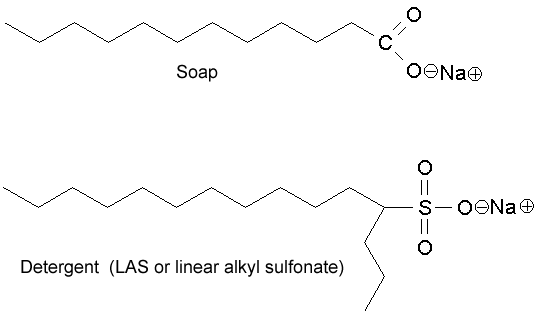In school, we did an experiment using fat and $\ce{KOH}$ to create 'soft' soap.
Afterwards, we added $\ce{NaOH}$ to change it into 'hard' soap.
I read on multiple places on the internet that the difference between using Potassium and Sodium is what determines if it becomes a 'hard' soap or 'soft' soap.
Am I correct in the notion that the $\ce{K+}$, resp. $\ce{Na+}$ ions connect to the $\ce{O-}$ ends of the Fatty Acid?
Is it possible to skip the first step and create 'hard' soap by using $\ce{NaOH}$ right away?
Why does 'Soft' soap dissolve so much easier than 'Hard' soap? Or in other words: Why is it much easier for the $\ce{K+}$ to fall off than for the $\ce{Na+}$ ?

